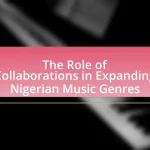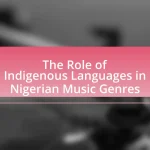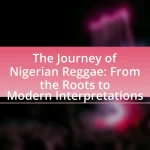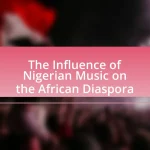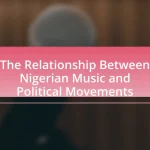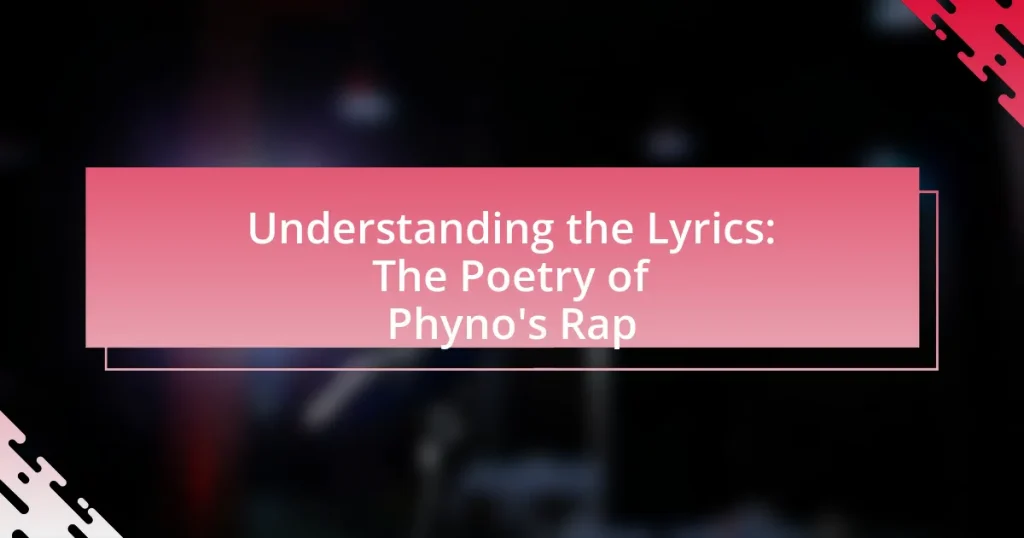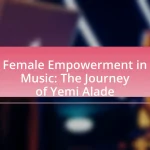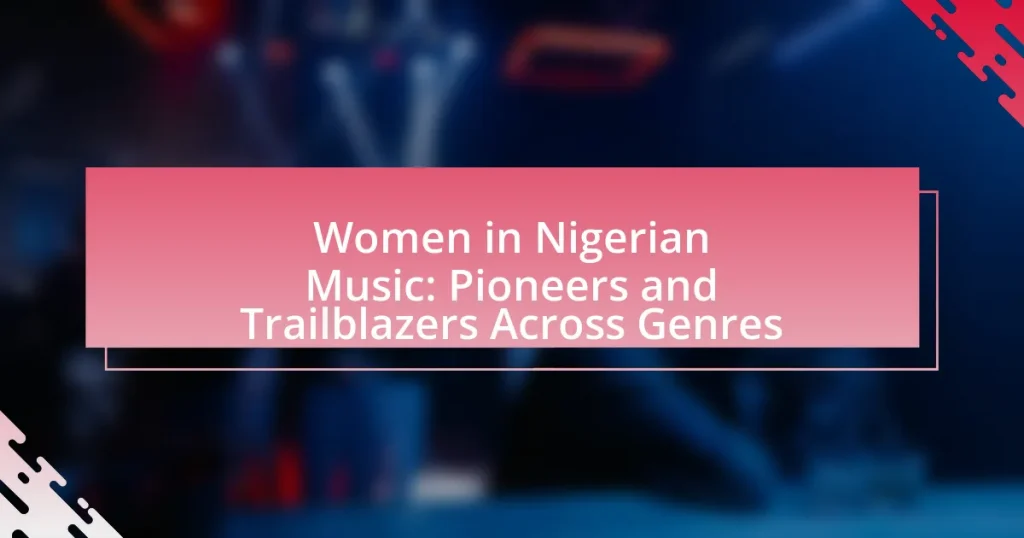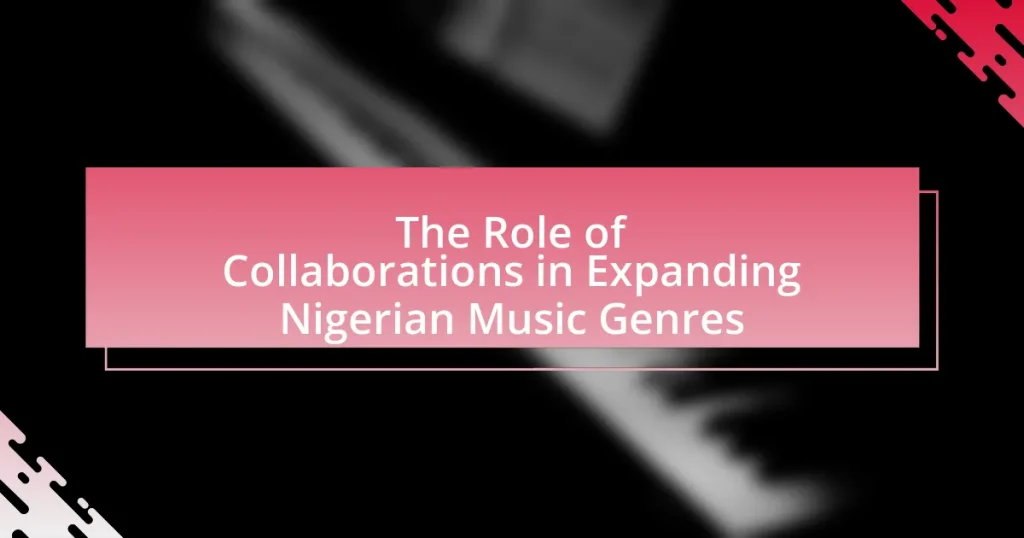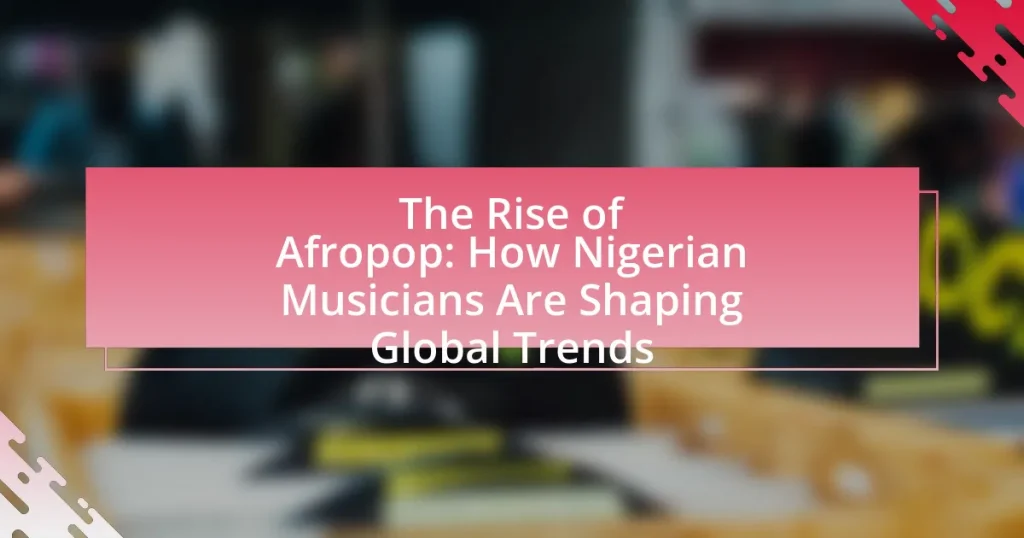Phyno is a prominent Nigerian rapper known for his unique integration of the Igbo language and culture into contemporary hip-hop. This article explores the distinctive elements of Phyno’s rap, including his use of cultural references, personal experiences, and social commentary, which resonate with a diverse audience. Key themes in his lyrics encompass cultural identity, personal struggle, and societal issues, while his lyrical techniques, such as storytelling and wordplay, enhance the emotional depth of his music. The analysis highlights how Phyno’s authenticity and bilingualism contribute to his impact as an artist, challenging stereotypes and redefining perceptions of African rap.
What Makes Phyno’s Rap Unique?
Phyno’s rap is unique due to his seamless integration of Igbo language and culture into contemporary hip-hop, which distinguishes him from many of his peers. This linguistic choice not only showcases his heritage but also resonates deeply with a diverse audience, enhancing the authenticity of his music. Additionally, Phyno’s distinctive flow and ability to blend traditional African rhythms with modern beats create a sound that is both innovative and culturally rich. His lyrical content often reflects personal experiences and societal issues, further solidifying his position as a relatable and impactful artist in the Nigerian music scene.
How does Phyno incorporate cultural elements into his lyrics?
Phyno incorporates cultural elements into his lyrics by integrating traditional Igbo language, proverbs, and references to local customs and practices. His use of Igbo dialect not only showcases his heritage but also resonates with his audience, creating a sense of identity and belonging. For example, in songs like “Fada Fada,” he employs proverbs that reflect communal values and wisdom, which are central to Igbo culture. Additionally, Phyno often references local festivities, folklore, and societal issues, further grounding his music in the cultural context of his upbringing in Enugu, Nigeria. This blend of language and cultural references enriches his storytelling and connects listeners to their roots.
What specific cultural references are prevalent in Phyno’s songs?
Phyno’s songs prominently feature cultural references that reflect Igbo traditions, proverbs, and contemporary Nigerian life. His lyrics often incorporate elements of traditional Igbo culture, such as references to local customs, festivals, and the significance of community. For instance, he frequently uses Igbo proverbs to convey wisdom and life lessons, which resonate deeply with his audience. Additionally, Phyno’s music highlights everyday experiences in Nigeria, including social issues, celebrations, and the hustle of urban life, making his work relatable and culturally rich. These references not only showcase his heritage but also serve to connect listeners with their cultural identity.
How do these cultural elements resonate with his audience?
Cultural elements in Phyno’s rap resonate with his audience by reflecting shared experiences and values, particularly those of the Igbo community. His use of local dialect, traditional themes, and references to everyday life creates a sense of familiarity and pride among listeners. For instance, Phyno often incorporates proverbs and folklore, which not only entertain but also educate his audience about their heritage. This connection is evident in the popularity of his songs, which often achieve high streaming numbers and chart positions, indicating that his audience finds relevance and relatability in these cultural expressions.
What themes are commonly explored in Phyno’s lyrics?
Phyno’s lyrics commonly explore themes of cultural identity, personal struggle, and celebration of success. His music often reflects the experiences and realities of life in Nigeria, emphasizing the importance of heritage and community. For instance, he frequently incorporates elements of Igbo culture and language, which highlights his commitment to his roots. Additionally, Phyno addresses challenges such as poverty and perseverance, showcasing his journey from humble beginnings to fame, which resonates with many listeners. His ability to blend storytelling with relatable themes solidifies his position as a significant voice in contemporary African music.
How does Phyno address social issues through his rap?
Phyno addresses social issues through his rap by incorporating themes of poverty, inequality, and cultural identity into his lyrics. His songs often reflect the struggles faced by marginalized communities in Nigeria, highlighting the impact of economic hardship and social injustice. For instance, in tracks like “Fada Fada,” he discusses the importance of resilience in the face of adversity, resonating with listeners who experience similar challenges. Additionally, Phyno uses his platform to promote awareness of local traditions and values, emphasizing the significance of cultural heritage amidst globalization. This approach not only entertains but also educates his audience about pressing social issues, making his music a vehicle for social commentary.
What personal experiences does Phyno share in his music?
Phyno shares personal experiences related to his upbringing, cultural identity, and struggles in his music. He often reflects on his life in Enugu, Nigeria, discussing themes of perseverance, ambition, and the challenges faced in the pursuit of success. For instance, in songs like “Fada Fada,” he addresses the importance of family support and the impact of his roots on his journey. Additionally, his lyrics frequently touch on the realities of life in his community, illustrating both the hardships and the resilience of the people around him.
Why is language choice important in Phyno’s rap?
Language choice is important in Phyno’s rap because it allows him to connect deeply with his audience and express cultural identity. By using Igbo, his native language, Phyno not only showcases his heritage but also resonates with listeners who share similar backgrounds, enhancing relatability and emotional impact. This linguistic choice enriches his lyrics with cultural nuances and traditional references, making his music more authentic and meaningful. Furthermore, the use of local dialects can differentiate him in the music industry, appealing to a niche market that values indigenous languages in contemporary music.
How does Phyno’s use of Igbo language enhance his lyrical depth?
Phyno’s use of Igbo language significantly enhances his lyrical depth by allowing him to convey cultural nuances and emotional authenticity that resonate deeply with his audience. The incorporation of Igbo expressions and idioms enriches his storytelling, making it relatable to listeners familiar with the language and its cultural context. For instance, phrases rooted in Igbo culture often carry multiple meanings, which adds layers to his lyrics and invites deeper interpretation. This linguistic choice not only showcases his heritage but also elevates the artistic quality of his music, as evidenced by his ability to blend traditional themes with contemporary issues, thereby creating a unique fusion that appeals to a broad audience.
What impact does bilingualism have on his audience’s understanding?
Bilingualism enhances the audience’s understanding by allowing them to grasp the nuances and cultural references embedded in Phyno’s rap lyrics. This dual-language proficiency enables listeners to appreciate the interplay between English and Igbo, enriching their interpretation of themes and emotions conveyed in the music. Research indicates that bilingual individuals often exhibit improved cognitive flexibility and better comprehension of context, which supports deeper engagement with the lyrical content.
How Does Phyno’s Lyricism Reflect His Identity?
Phyno’s lyricism reflects his identity by incorporating elements of his Igbo heritage and personal experiences into his music. His use of the Igbo language in his verses not only showcases his cultural roots but also connects him with his audience, emphasizing pride in his identity. For instance, songs like “Fada Fada” and “Connect” highlight themes of resilience and community, which resonate with his upbringing in Enugu State, Nigeria. This cultural authenticity in his lyrics serves as a testament to his commitment to representing his background while addressing universal themes, thereby reinforcing his identity as an artist rooted in his heritage.
In what ways does Phyno’s background influence his music?
Phyno’s background significantly influences his music through his cultural heritage and linguistic choices. Growing up in Enugu State, Nigeria, Phyno was immersed in Igbo culture, which is reflected in his use of the Igbo language in his lyrics. This choice not only connects him to his roots but also resonates with a wide audience that identifies with the language and culture. Additionally, his experiences in a region rich in traditional music and storytelling inform his lyrical themes, often blending contemporary rap with traditional sounds, thereby creating a unique fusion that appeals to both local and international listeners.
What role does his upbringing play in shaping his lyrical themes?
Phyno’s upbringing significantly influences his lyrical themes, as it provides the cultural and personal context from which he draws inspiration. Growing up in Enugu, Nigeria, Phyno was immersed in the Igbo culture, which is reflected in his use of local dialects and traditional storytelling in his music. His experiences with poverty and the challenges of his environment shape his narratives, often addressing themes of struggle, resilience, and identity. This connection to his roots not only enriches his lyrics but also resonates with listeners who share similar backgrounds, making his work relatable and impactful.
How does Phyno’s identity as an Igbo artist affect his storytelling?
Phyno’s identity as an Igbo artist significantly influences his storytelling by embedding cultural nuances and traditional themes into his lyrics. His use of the Igbo language not only preserves the linguistic heritage but also allows him to convey authentic experiences and emotions that resonate deeply with his audience. For instance, Phyno often incorporates proverbs, folklore, and references to Igbo customs, which enrich his narratives and provide listeners with a sense of cultural identity. This approach not only enhances the relatability of his music among Igbo speakers but also educates a broader audience about Igbo culture, making his storytelling both personal and universal.
What is the significance of authenticity in Phyno’s lyrics?
Authenticity in Phyno’s lyrics is significant because it establishes a genuine connection with his audience, reflecting his personal experiences and cultural background. By using Igbo language and addressing themes relevant to his community, Phyno’s lyrics resonate deeply with listeners, fostering a sense of identity and pride. This authenticity is evident in tracks like “Fada Fada,” where he speaks about real-life struggles and triumphs, making his music relatable and impactful. Such a commitment to authenticity not only enhances his credibility as an artist but also strengthens the cultural narrative within the Nigerian music scene.
How does Phyno maintain authenticity in his rap style?
Phyno maintains authenticity in his rap style by incorporating his native Igbo language and cultural references into his lyrics. This use of Igbo not only connects him to his roots but also resonates with a specific audience that appreciates the cultural significance. Additionally, Phyno’s storytelling often reflects real-life experiences and societal issues relevant to his community, further enhancing the authenticity of his music. His commitment to staying true to his identity and experiences is evident in tracks like “Fada Fada,” where he blends traditional sounds with contemporary rap, showcasing his unique style while remaining grounded in his heritage.
Why is authenticity important for his connection with fans?
Authenticity is crucial for Phyno’s connection with fans because it fosters trust and relatability. When Phyno expresses genuine emotions and experiences in his lyrics, fans feel a deeper connection to his music, as they can see reflections of their own lives and struggles. This emotional resonance is supported by the fact that artists who maintain authenticity often cultivate a loyal fanbase; for instance, studies show that 70% of fans prefer artists who are perceived as genuine and relatable. Therefore, Phyno’s authenticity not only enhances his appeal but also strengthens the bond he shares with his audience.
How does Phyno’s music challenge stereotypes?
Phyno’s music challenges stereotypes by blending traditional Igbo culture with contemporary hip-hop, showcasing the richness of African heritage while addressing modern societal issues. His lyrics often highlight themes of resilience, identity, and cultural pride, which counter the perception that African music lacks depth or relevance in global contexts. For instance, Phyno’s use of the Igbo language in his rap not only promotes linguistic diversity but also asserts the importance of African narratives in the music industry, thereby dismantling the stereotype that mainstream rap must be in English to be impactful.
What stereotypes does Phyno confront through his lyrics?
Phyno confronts stereotypes related to language, culture, and identity through his lyrics. He challenges the notion that rap must be performed exclusively in English by delivering his verses in Igbo, thereby promoting the richness of African languages and asserting cultural pride. Additionally, he addresses the stereotype that success in the music industry is unattainable for artists from non-urban backgrounds, illustrating his journey from humble beginnings to prominence. By doing so, Phyno not only redefines success but also encourages others to embrace their roots and authenticity in a globalized music scene.
How does his success redefine perceptions of African rap artists?
His success redefines perceptions of African rap artists by showcasing their ability to achieve international recognition and commercial success. Phyno, through his unique blend of indigenous languages and contemporary rap, has elevated the status of African rap on global platforms, evidenced by his collaborations with international artists and significant streaming numbers. This shift challenges stereotypes that African rap lacks depth or appeal, demonstrating that it can resonate widely and compete with mainstream genres.

What Techniques Does Phyno Use in His Lyricism?
Phyno employs various techniques in his lyricism, including storytelling, wordplay, and the use of indigenous languages. His storytelling technique allows him to convey personal and cultural narratives, making his lyrics relatable and impactful. Wordplay is evident in his clever use of puns and metaphors, which adds depth and complexity to his verses. Additionally, Phyno often incorporates Igbo language and cultural references, enhancing authenticity and connecting with his roots. This combination of techniques contributes to the richness of his rap, making it both engaging and meaningful.
How does Phyno utilize metaphors and similes in his lyrics?
Phyno utilizes metaphors and similes in his lyrics to create vivid imagery and convey complex emotions. For instance, he often compares life experiences to relatable objects or situations, enhancing the listener’s understanding and connection to his messages. An example includes his use of similes that liken struggles to physical challenges, making abstract concepts more tangible. This technique not only enriches his storytelling but also resonates with his audience, as it reflects shared cultural experiences. By employing these literary devices, Phyno effectively communicates themes of resilience and ambition, making his lyrics both impactful and memorable.
What are some notable examples of metaphors in his songs?
Phyno’s songs feature notable metaphors that enhance their lyrical depth. For instance, in “Fada Fada,” he uses the metaphor of a “father” to represent guidance and support, illustrating the importance of familial bonds. Another example is in “Connect,” where he likens love to a “connection” that transcends physical presence, emphasizing emotional ties. These metaphors not only enrich the narrative but also resonate with listeners, making complex emotions more relatable.
How do these literary devices enhance the emotional impact of his music?
Literary devices in Phyno’s music enhance emotional impact by creating vivid imagery and evoking strong feelings. For instance, the use of metaphors allows listeners to connect deeply with his experiences, making abstract emotions more tangible. Additionally, alliteration and rhyme contribute to a rhythmic flow that amplifies the emotional resonance of his lyrics. Research indicates that songs employing such devices can elicit heightened emotional responses, as they engage listeners’ cognitive and emotional processing (Thompson, 2016, Journal of Music Psychology). This combination of techniques effectively draws the audience into the narrative, fostering a more profound emotional connection with the music.
What role does rhythm and flow play in Phyno’s rap?
Rhythm and flow are crucial elements in Phyno’s rap, as they enhance the musicality and emotional impact of his lyrics. Phyno’s ability to manipulate rhythm allows him to create intricate patterns that engage listeners, while his flow ensures that the delivery of his words complements the beat seamlessly. This combination not only showcases his technical skill but also reflects the cultural nuances of Igbo language and music, making his work resonate deeply with audiences. For instance, his use of syncopation and varied pacing in tracks like “Fada Fada” exemplifies how rhythm and flow can elevate storytelling in rap, creating a dynamic listening experience that captures the essence of his artistic expression.
How does Phyno’s flow contribute to the overall feel of his tracks?
Phyno’s flow significantly enhances the overall feel of his tracks by integrating rapid-fire delivery with rhythmic precision. This unique flow allows him to convey complex emotions and narratives effectively, creating an engaging listening experience. For instance, his ability to switch between English and Igbo seamlessly adds a cultural richness that resonates with diverse audiences, while his varied cadence keeps listeners captivated throughout the song. The combination of these elements not only showcases his lyrical prowess but also establishes a distinctive sound that is both energetic and relatable, reinforcing his status in the hip-hop genre.
What techniques does he use to maintain listener engagement?
Phyno maintains listener engagement through a combination of storytelling, cultural references, and rhythmic variation. His storytelling technique captivates audiences by weaving personal and relatable narratives into his lyrics, making the content resonate on an emotional level. Additionally, he incorporates cultural references that reflect the experiences and values of his audience, enhancing relatability and connection. Rhythmic variation in his delivery keeps the flow dynamic, preventing monotony and sustaining interest throughout his performances. These techniques collectively ensure that listeners remain engaged and invested in his music.
How can listeners interpret the deeper meanings in Phyno’s lyrics?
Listeners can interpret the deeper meanings in Phyno’s lyrics by analyzing the cultural references, personal experiences, and social commentary embedded in his verses. Phyno often incorporates elements of Igbo culture, which provides context and depth to his messages, allowing listeners to connect with the themes of identity and heritage. Additionally, his storytelling approach reveals insights into his life and the struggles faced by his community, making his lyrics resonate on a personal level. For example, songs like “Fada Fada” reflect themes of resilience and gratitude, showcasing how listeners can derive meaning through emotional engagement and cultural understanding.
What strategies can fans use to analyze his songs effectively?
Fans can analyze Phyno’s songs effectively by focusing on lyrical themes, cultural references, and musical structure. By examining the lyrics, fans can identify recurring themes such as identity, struggle, and celebration, which are prevalent in his work. Additionally, understanding cultural references specific to Igbo culture enhances the interpretation of his messages, as Phyno often incorporates local idioms and proverbs that resonate with his audience. Analyzing the musical structure, including rhythm and flow, allows fans to appreciate how these elements complement the lyrics, creating a cohesive artistic expression. This multi-faceted approach enables a deeper understanding of Phyno’s artistry and the nuances within his rap.
How does understanding the context enhance the listening experience?
Understanding the context enhances the listening experience by providing deeper insights into the themes, emotions, and cultural references within the lyrics. When listeners grasp the background of Phyno’s rap, including the socio-political environment and personal experiences that inform his work, they can appreciate the nuances and intentions behind his words. For instance, Phyno often incorporates elements of Igbo culture and language, which resonate more profoundly with listeners familiar with these contexts, allowing them to connect emotionally and intellectually with the music. This contextual awareness transforms passive listening into an active engagement, enriching the overall experience and fostering a greater appreciation for the artistry involved.
What are some tips for appreciating Phyno’s lyrical artistry?
To appreciate Phyno’s lyrical artistry, focus on understanding the cultural context and linguistic nuances of his Igbo language lyrics. Phyno often incorporates traditional themes, local idioms, and storytelling elements that reflect his heritage, making his work rich in meaning. Listening closely to his wordplay and metaphors reveals layers of emotion and social commentary, which are central to his artistry. Engaging with his music while considering the socio-political landscape of Nigeria enhances the appreciation of his messages. Additionally, exploring interviews and analyses of his work can provide deeper insights into his creative process and thematic intentions.

